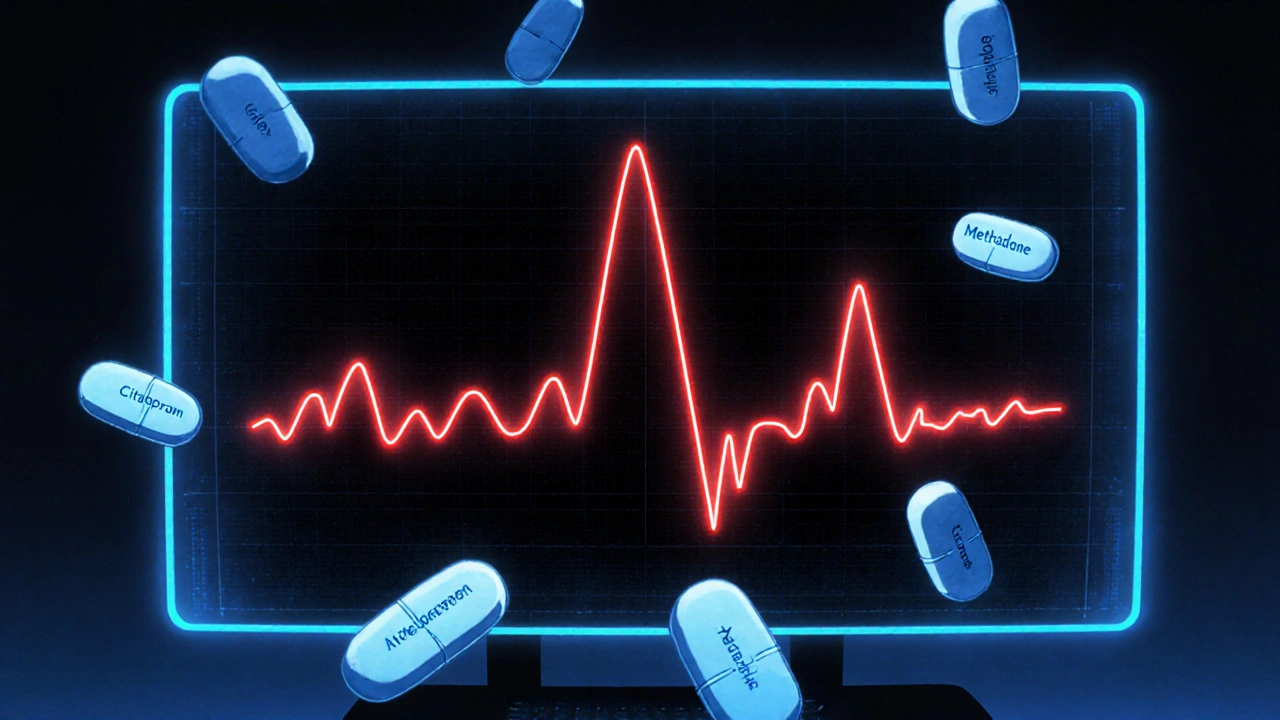Torsades de Pointes: Causes, Risks, and Medications That Can Trigger It
When your heart’s electrical system gets messed up, it can start beating in a wild, unpredictable pattern called Torsades de Pointes, a specific type of life-threatening ventricular arrhythmia that often occurs in people with prolonged QT intervals. Also known as polymorphic ventricular tachycardia, it doesn’t just cause dizziness—it can stop your heart if not treated fast. This isn’t just a rare medical curiosity. It’s a real danger tied to common medications, electrolyte imbalances, and even genetic risks.
Most cases of Torsades de Pointes happen because something stretches out the heart’s electrical recovery time—called the QT interval. That’s why long QT syndrome, a condition where the heart takes too long to recharge between beats, making it prone to dangerous rhythms is so closely linked to it. Some people are born with it. Others get it from drugs. Medications like certain antibiotics, antipsychotics, and even some anti-nausea pills can push the QT interval past the danger line. Even something as simple as low potassium or low magnesium can be enough to tip the balance, especially if you’re already on a risky drug.
It’s not just about the drug itself—it’s about the combo. Taking two QT-prolonging meds together? That’s like stacking two risk factors on top of each other. And if you’re older, female, or have kidney problems? Your body processes these drugs slower, making the risk even higher. You won’t always feel it coming. One moment you’re fine, the next you’re dizzy, then passing out. That’s why doctors check your ECG before and after starting certain meds. It’s not overkill—it’s prevention.
What’s scary is how many of these drugs are used every day. Antidepressants like citalopram, antibiotics like moxifloxacin, and even some heart rhythm drugs meant to help can actually cause Torsades de Pointes in the wrong person. That’s why knowing your meds matters. If you’ve been told to avoid grapefruit with your pills, you should also ask: "Could this affect my heart’s rhythm?" It’s a simple question that could save your life.
The good news? If caught early, Torsades de Pointes can be reversed. Magnesium is often the first-line treatment. Stopping the offending drug helps. Correcting low electrolytes fixes the root cause. But prevention beats treatment every time. That’s why the posts below dive into the real-world risks—like how MAOIs and anticholinergics can quietly mess with your heart rhythm, how medication overlaps in seniors increase danger, and why checking your drug list isn’t just smart—it’s essential. You’ll find clear, no-fluff guides on which drugs to watch, what tests to ask for, and how to talk to your doctor before it’s too late.
Torsades de Pointes from QT-Prolonging Medications: How to Recognize and Prevent This Deadly Reaction
Torsades de Pointes is a rare but deadly heart rhythm caused by QT-prolonging medications. Learn how to recognize the warning signs, which drugs are most dangerous, and exactly how to prevent this preventable cardiac emergency.
